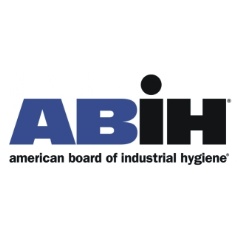Lung Cancer Awareness Month and the Importance of Protecting Workers from All Types of Respirable Hazards
The American Board of Industrial Hygiene® (ABIH®) reminds workers and industry of the need to address airborne hazards in the workplace and throughout communities.
We can stop many new cases of lung cancer and other respiratory conditions, such as asthma and COPD that can be due to occupational exposure to known airborne hazards.
November is recognized as Lung Cancer Awareness Month and in the United States, as in many other parts of the world, more people die from this disease than from any other type of cancer. In the U.S. alone, approximately 200,000 people are told they have lung cancer and more than 150,000 die from the disease annually. Globally, the World Health Organization (WHO) reports that lung cancer has been the most common cancer in the world for several decades, and as recently as 2015, it was responsible for about 1,690,000 deaths.
Smoking remains the number one cause of lung cancer, but there are also a number of air quality and industrial contaminants that are known carcinogens. These include radon, a cause of lung cancer that is believed to result in an estimated 20,000 lung cancer deaths each year in the U.S. There are also many other culprits, for example, exposure to silica particulates can result in silicosis and has been linked to lung cancer as has asbestos, which can cause lung cancer, asbestosis, and mesothelioma. Workplace exposure to diesel exhaust, and a variety of other respirable dusts and aerosols, can also cause lung cancer and other respiratory diseases.
“We can stop many new cases of lung cancer and other respiratory conditions, such as asthma and COPD that can be due to occupational exposure to known airborne hazards,” said Jeffrey Miller, PhD, CIH® and Chair of ABIH®. “On the frontlines working to make this a reality are thousands of Certified Industrial Hygienists working for industry, institutions and government agencies across the globe. CIHs are uniquely qualified to help in these prevention efforts due to their training in health risk analysis, hazard communication, personal protective equipment, community exposure, engineering controls, ventilation, air sampling, and instrumentational analysis. Their knowledge of radiation, chemical, and biological pollutants also affords them the ability to anticipate, recognize, evaluate, and control respirable hazards that are known to cause lung cancer and numerous other respiratory diseases. At ABIH® we strongly advocate for the efforts of those promoting respirable hazard recognition during Lung Cancer Awareness Month and throughout the entire year.”
To learn more about the American Board of Industrial Hygiene®, the Certified Industrial Hygienist® credential, or to locate a CIH® to perform industrial hygiene services, please visit www.ABIH.org or email abih@ABIH.org . For information about the Qualified Environmental Practitioner (QEP®) credential or Environmental Professional In-Training (EPI) designation, visit www.IPEP.org or email ipep@IPEP.org . Please call (517) 321-2638 for questions about ABIH or its credentials and designations.
About the American Board of Industrial Hygiene ®
Since 1960, ABIH®, a not-for-profit corporation, has been the world’s largest organization for certifying professionals in the practice of industrial hygiene. ABIH® is the premier credentialing body responsible for ensuring high-quality certification including education, experience, examination, certification maintenance, and ethics enforcement. ABIH® also administers the Qualified Environmental Professional (QEP®) credential for established environmental practitioners and the Environmental Professional In-Training (EPI) designation for early-career practitioners. Currently, more than 7,600 people around the world hold the CIH® credential, QEP® credential, or EPI designation.
( Press Release Image: https://photos.webwire.com/prmedia/12710/230892/230892-1.jpg )
WebWireID230892
- Contact Information
- Paul Cochrane
- President
- Cochrane & Associates, LLC
- Contact via E-mail
This news content may be integrated into any legitimate news gathering and publishing effort. Linking is permitted.
News Release Distribution and Press Release Distribution Services Provided by WebWire.
